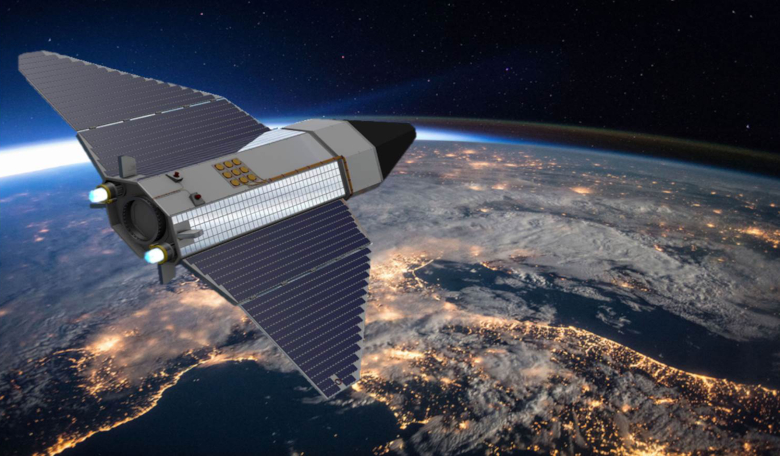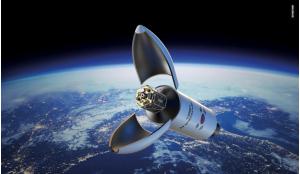The Government is being urged to invest more in the space sector to fight climate change as new research shows that the industry could generate thousands of high-level new “green jobs” in the UK.
The projections by a former Bank of England economist feature in the Stratospheric Green Growth Report published today by UKspace.
It comes as the Government recently acknowledged the transformative environmental potential of space – by announcing a new £5 million satellite data centre will use cutting-edge satellite technology to help combat climate change.
The new report sets out how the space sector holds the key to 15,000 green jobs being created in the UK by 2030. The green jobs would be some of the highest value in the country, delivering output rates to match the most productive industrial sectors in the UK economy.
Creating these kinds of jobs would be the equivalent of adding the workforce of four Google UK HQ’s to the economy, spreading growth and innovation across the UK. But the new jobs will only be created in the UK if the government is prepared to invest in the space sector.
The new roles would include:
- Extreme weather data scientists
- Natural environment investment analysts
- Space-data enabled crop managers
- Agricultural satellite advisers
- Space capability farm machinery retrofitters
- Natural disaster hotspot monitoring consultants
- Space data traffic control operatives
- Space data emissions reduction professionals
- Earth observation shipping navigators
- Solar power transmission technicians
The jobs would also help the UK demonstrate on the world stage ahead of COP26 that the UK is investing in tackling climate change. To make the high-level green jobs bonanza a reality, UKspace is calling on policymakers to support a number of specific actions.
In particular it is calling for the establishment of a National Space Programme, which includes a new £150m-a-year Innovation Fund. The NSP’s primary objective would be to ensure that the UK space sector plays an increasingly prominent role in the global space market, with the Innovation Fund providing specific focus on funding R&D to unlock new opportunities.
Will Whitehorn, President of UKspace, said: “Space has never been as important in tackling climate change and generating growth across the regions of the UK as it is today. Yet, if we don’t get the investment conditions right, our ability to achieve our targets could be destabilised. The new technologies in creating space growth are upon us, and must be utilised to help the UK become a powerhouse in tackling climate change.”
Graham Peters, Chair of UKspace, said: “As the world wakes up to the devastating impact of climate change, the space industry is already equipping policymakers with tools to help monitor and improve the environment as never before.
“Now this analysis shows that the UK has an enormous opportunity to lead the world in using satellite technology to tackle climate change. By properly investing in the UK space industry, the UK could capitalise on a massive global market in environmental protection and monitoring, mitigating the effects of climate change and providing solutions to reduce carbon emissions. It would mean a new industrial revolution right here in the UK, creating thousands of new green jobs ranging from extreme weather data scientists and natural environment investment analysts to space-data enabled crop managers”
Conservative MP David Morris, chair of the parliamentary group on Space, said: “The Prime Minister has made it clear that he wants us to come together with the courage and the technological ambition to solve man-made climate change. With a wave of new green technologies set to take off from space and thousands of green jobs in the pipeline, the UK space industry should be at the forefront of this agenda.”
Andy Green CBE, Trustee of WWF UK, said: “As the world steps up to the twin challenges of the climate emergency and restoring nature, only space technology can give us the global information we need to direct our efforts to the best effect. The UK has a real opportunity to lead the way in this area and increase the global impact of its commitment to nature.”











